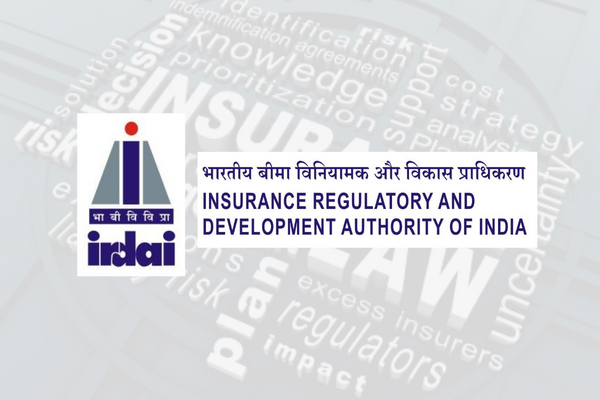- October 6, 2022
- Posted by: Maestro Legal
- Categories:

by Arohan Pattnaik*
Background of the Appointments before the new Framework
Section 48A of the Insurance Act, 1938 (“Act”) prohibited the nomination of the same individual to the Board of Directors (“Board”) of both an insurer and an insurance intermediary (brokers, corporate agents, and web aggregators) (“Common Director”). But this was subject to the Insurance Regulatory and Development Authority of India (“IRDAI”). IRDAI had the authority to allow an intermediary to serve on the Board of Directors of insurance business, provided there was a compliance with the requirements and restrictions established by the authority. As a result, if an insurer wishes to appoint Common Directors to its Board, prior IRDAI permission is required.
The IRDAI issued an advisory for insurers seeking permission under Section 48A of the Act in its 2018 circular on Appointment or Continuation of Common Directors on the Board of Insurance Companies dated August 30, 2018. The 2018 Circular required insurers to meet certain conditions, including ensuring that there was no conflict of interest or prejudice against the interests of policyholders when obtaining authorization from the IRDAI for the appointment or continuation of common directors.
However, concerns were raised about the potential conflict of interest in circumstances in cases wherein Executive Directors/ Whole Time Directors (“ED”) served simultaneously on the intermediary as well as the Board of an insurer. To address the conflict the IRDAI published an exposure draught on IRDAI (Conflict of Interest) Guidelines, 2019 on March 8, 2019. This was however merely a draft and not a finalized record.
Following the issuance of the draft guidelines, IRDAI repealed the 2018 Circular and introduced a new framework for seeking approval for the appointment and/or continuation of common directors on the Boards of insurers and intermediaries in a circular on Appointment or Continuation of Common Directors u/s 48A of Insurance Act, 1938 on September 2, 2022, which is also known as the 2022 Circular. Connect with the insurance advisory team of maestro legal at nikhil@maestrolegal.in
New Framework under the 2022 Circular
Clause 3(a)
The 2022 Circular establishes a framework for the IRDAI’s presumed approval for the appointment and/or continuance of common directors representing an intermediary on an insurer’s Board of Directors. Clause 3(a) of the circular issued mentions about the appointment or continuation of a common director representing an intermediary on the Board of an insurer to be subject to certain conditions, which if met, providing the fact that such appointment is consistent with other provisions of the 2022 Circular shall be allowed.
Subjects to be Considered as per New Guidelines (Clause 3(a))
- While holding the position of director in the insurance company, the proposed director shall not work as the Chief Insurance Executive / Specified Person or any other officer responsible for soliciting insurance business for or on behalf of the insurance agent, intermediary, or insurance intermediary.
- On appointment, there should be no conflict of interest with the interests of the policyholders.
- No remuneration shall be paid by insurers to any non-executive directors without approval from IRDAI. Neither are insurers permitted to pay sitting fees as per norms.
- The disclosure requirement as laid down under the Corporate Governance Guidelines for Insurers in India, IRDA (Preparation of Financial Statement and Auditor’s Report of Insurance Companies) Regulations, 2002, and any other extant applicable laws shall be complied with.
- A resolution is passed approving such appointment by the Board of insurance company/agent/intermediary/insurance intermediary.
- The number of directorships held by the common director shall not exceed, at any point of time, the maximum number of directorships specified under the extant law including the Companies Act, 2013.
Clause 3(b)
Additionally, Clause 3(b) of the 2022 Circular provides for the following:
“An individual, already acting or proposed to act as Executive Director/ Whole-time Director on the Board of the Insurer/ Agent/ Intermediary/ Insurance Intermediary, shall not be appointed as nominee/ common director.”
On a closer look, Clause 3(b) of the 2022 Circular construed to establish an unambiguous restriction on the appointment or continuing of an ED of an intermediary as a nominee director on the Board of an insurer. The phrase “already acting” in Clause 3(b) caused misunderstanding in the insurance industry regarding the continuity of the Common Directors appointed with the IRDAI’s prior consent. By extending this to Common Directors already nominated to the Boards of insurers, it appeared that this section weakened the IRDAI’s approval mechanism. Clause 3(b) of the 2022 Circular implies that such directors would be required to resign or be replaced immediately. But to clarify the misconception and doubt a clarification guideline was laid.
Contact our Insurance Lawyer at nikhil@maestrolegal.in
Clarification from the IRDAI
To rectify the misunderstanding, the IRDAI published a clarifying circular titled Clarification on Circular on Appointment or Continuation of Common Director (“Clarification”) on September 13, 2022. The Clarification stated, among other things, that:
1. Directors already appointed to the Board after obtaining prior approval from the IRDAI under Section 48A of the Act shall continue to hold the directorship until the term of appointment expires; and
2. Clause 3(b) of the 2022 Circular shall not apply in the case of a director appointed or proposed to be appointed as a nominee of the insurer’s promoter. The above Clarification clearly provides that EDs serving on the Boards of intermediaries may be appointed as nominee directors of the promoters of insurers.
As a result, insurers’ board structures can remain intact as long as the common directors are promoter nominee directors or have been approved by IRDAI. Because they are involved in the day-to-day operations of an intermediary and play a vital governance role, the EDs of an intermediary are typically sought after by insurers to serve on their Boards. This greatly aids insurers in harnessing the expertise of important insurance sector professionals, thereby adding value to the services they provide by increasing the value of business judgement, ultimately benefiting policyholders.
Furthermore, the IRDAI has given a much-needed structure for deemed approval of common directors on the Boards of intermediaries and insurers through its 2022 Circular, which sets standards that nominated directors must meet before taking on the common position. This has relaxed the obligation for insurers and intermediaries to seek the IRDAI for the appointment of common directors on their boards. However, the directors must meet the fit and suitable criteria as well as the transparency requirements outlined in the Corporate Governance Guidelines. This is a positive step since it is a balanced approach in which IRDAI has ensured adherence to higher levels of corporate governance while also eliminating administrative processes related to the selection of common directors.
*Arrohan Pattnaik is a student of B.B.A. LL.B (2021 – 2021) from Symbiosis Law School, Noida currently interning with Team General Corporate of Maestro Legal as a Research Intern.
